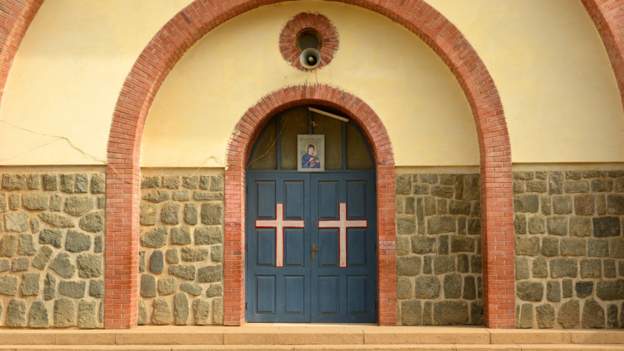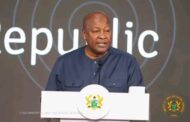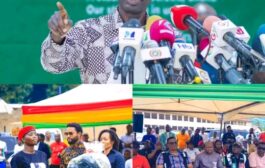Catholic schools seized. Church-run clinics shut down. Eritrean Catholics say the government has – for years – been taking over their property. Primary schools are just the latest to have been seized.
The Catholic Church is one of four religious groups allowed to operate in the repressive country – the others being the Eritrean Orthodox Church, Evangelical Lutherans and Sunni Islam.
But the BBC’s Teklemariam Bekit says there is now fear within the Catholic Church in Eritrea.
“Most of the nuns, brothers and priests that were engaged in teaching are out of a job,” he says.
In the past, the Eritrean government has justified these takeovers, by saying education and health are responsibilities of the state – not the church.
But for the Catholic community, this has created a sense of unease – and they’re not alone at that.
Human rights activists accuse Eritrea of religion-related oppression.
“In 2002, the government shut my church and also started arresting all the pastors,” Reverend Dr Berhane Asmelash told me.
Now based in the UK, he’s the director of Release Eritrea, a group that supports Christians in Eritrea. “I knew that, if I go back, I’d go straight to prison,” he said.
Some Christian groups – in particular, Pentecostal and Evangelical Christians – have often been accused of being instruments of foreign governments.
And yet, it is hard to reconcile these events with Eritrea’s historic links to Christianity. After all, it was in the land of modern-day Eritrea that some of Africa’s earliest churches were built.
So, where did things go wrong? In Wednesday’s edition of Africa Daily, I try to answer that question.
Source: BBC




















































